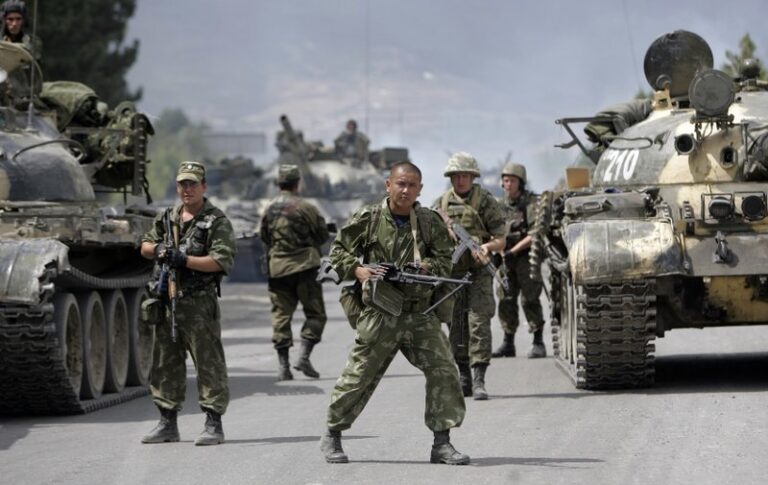
(AP) — Europe’s top human rights court on Thursday found Russia responsible for a swath of violations in Georgia’s breakaway regions after the 2008 Russia-Georgia war.
Georgia hailed the verdict by the European Court of Human Rights as a major victory.
President Salome Zurabishvili described the ruling as “historic,” noting that Georgia was “recognized as a victim of this war and it is a great achievement for our country, our society, our history and our future.”
Prime Minister Giorgi Gakharia also described the verdict as a landmark move, saying that “the case against Russia at the European Court of Human Rights has ended with Georgia’s victory.”
The August 2008 war erupted amid rising tensions over the breakaway Georgian region of South Ossetia, much of which was under control of Russia-backed separatists. Georgia said it launched an artillery barrage on the regional capital after Russian combat troops entered the region and shelled Georgian villages, but Russia claimed the troops entered only in response to the artillery.
After the war, Moscow set up military bases in South Ossetia and another breakaway Georgian province, Abkhazia, and recognized them as independent states, while most of the world has continued to consider them part of Georgia.
In its case against Russia, Georgia accused it of violating the European Convention on Human Rights both during and after the war, but the ECHR only accepted the Georgian complaints related to the period after the fighting.
The Strasbourg-based court ruled that Russia exercised effective control over Georgia’s separatist regions after the hostilities and was responsible for ill-treatment and acts of torture against Georgian prisoners of war, arbitrary detentions of Georgians and “inhuman and degrading treatment” of 160 detained Georgian civilians, who were held in crowded confinement for more than two weeks in August 2008.
It also held Russia responsible for preventing forcibly displaced ethnic Georgians from returning to the separatist regions after the conflict. The court ordered Moscow to conduct a probe into human rights violations during the hostilities and in their aftermath.
Georgia’s Foreign Minister David Zalkaliani hailed the ECHR’s ruling as “an unprecedented international victory of the Georgian state.”
Russia’s Justice Ministry voiced disagreement with some of the court’s conclusions blaming Russia for the incidents in South Ossetia and Abkhazia “despite the fact that the Russian troops’ direct involvement in them was never proven.”
At the same time, the ministry emphasized the ECHR’s decision that the Georgian complaints related to the period of fighting were inadmissible.






